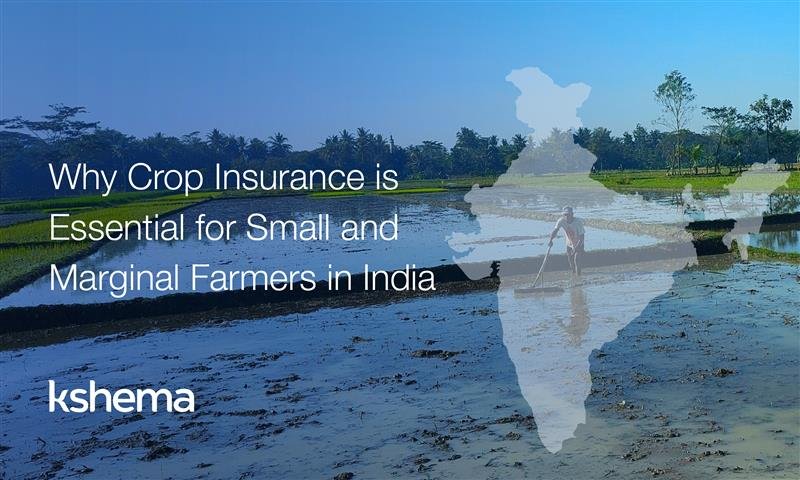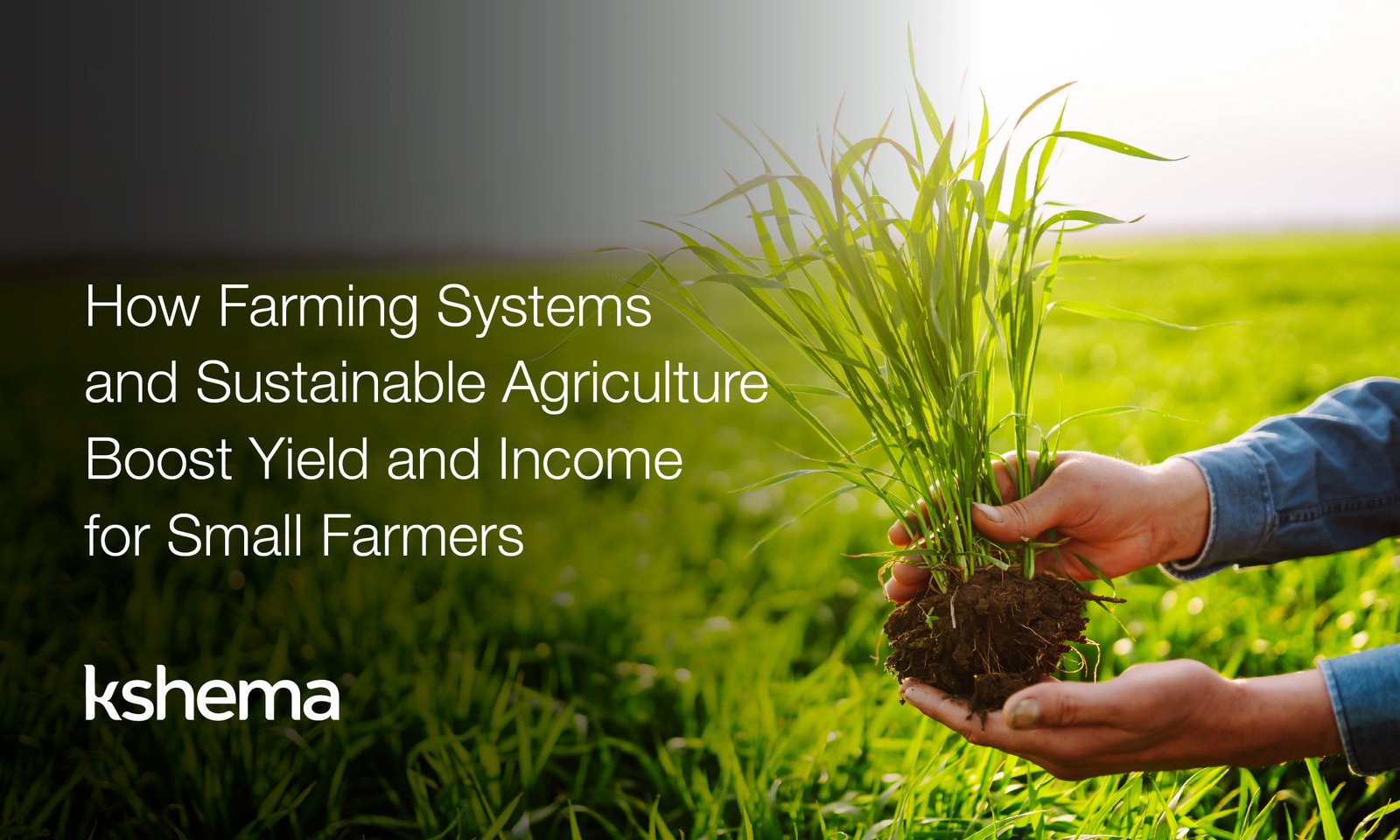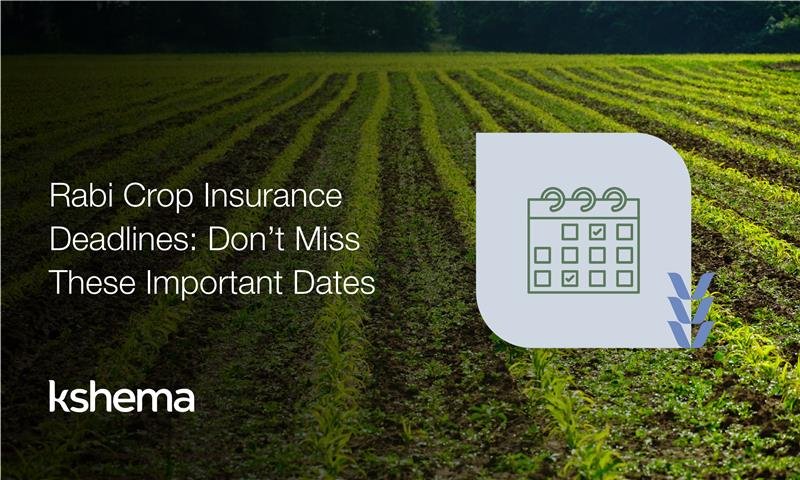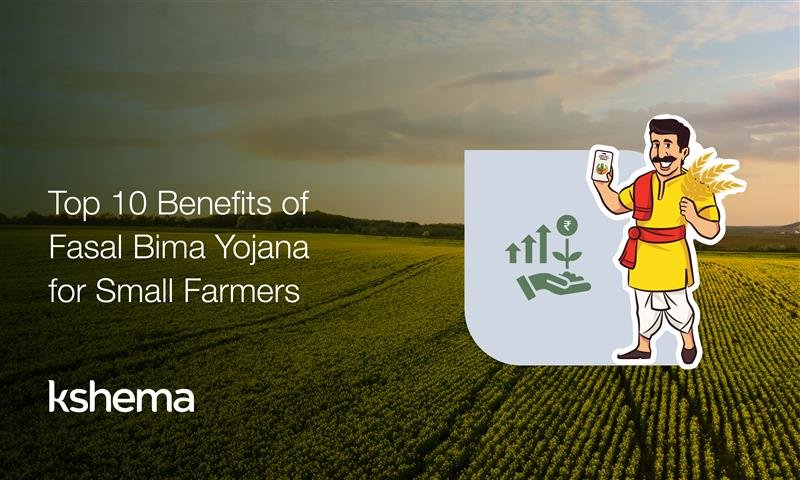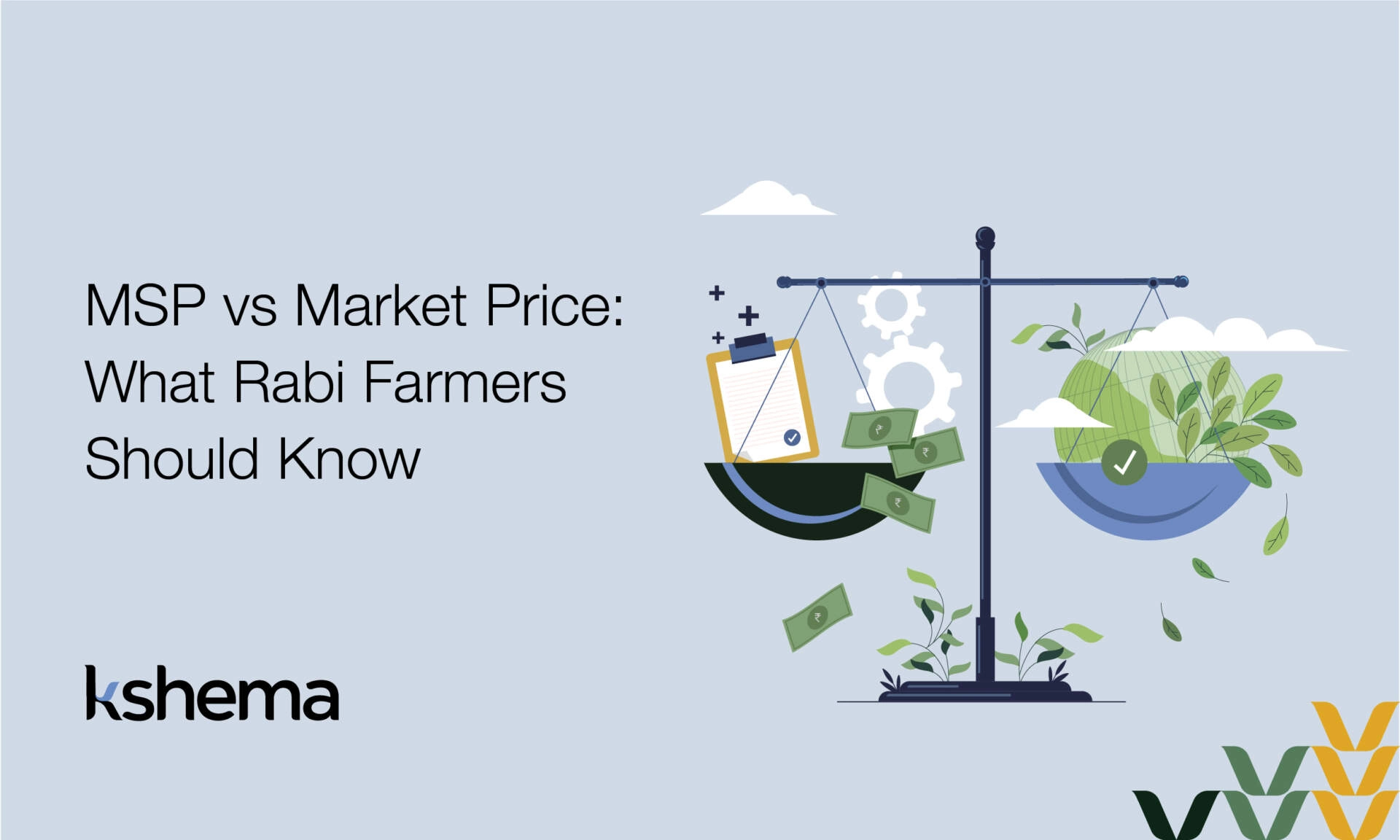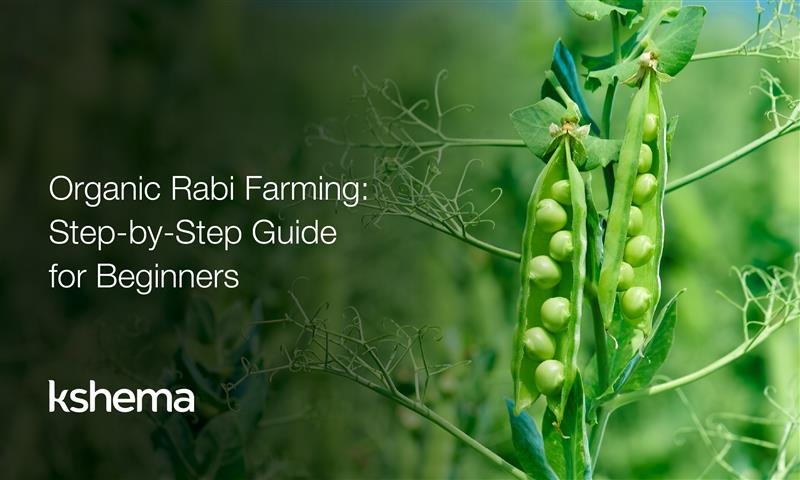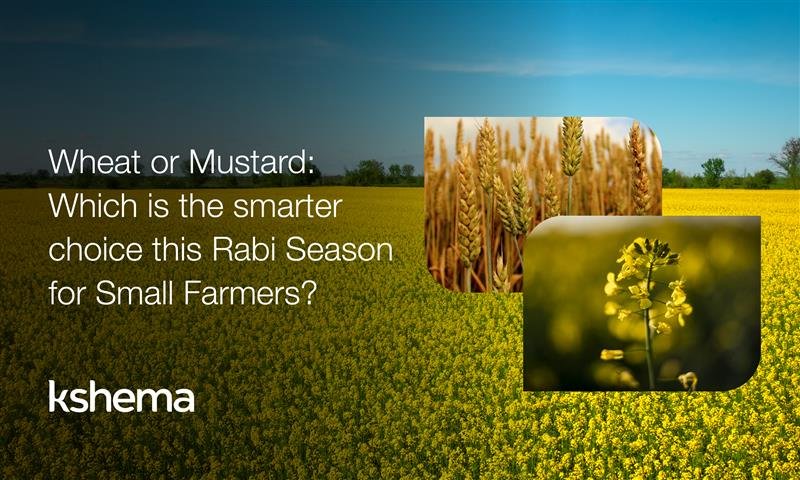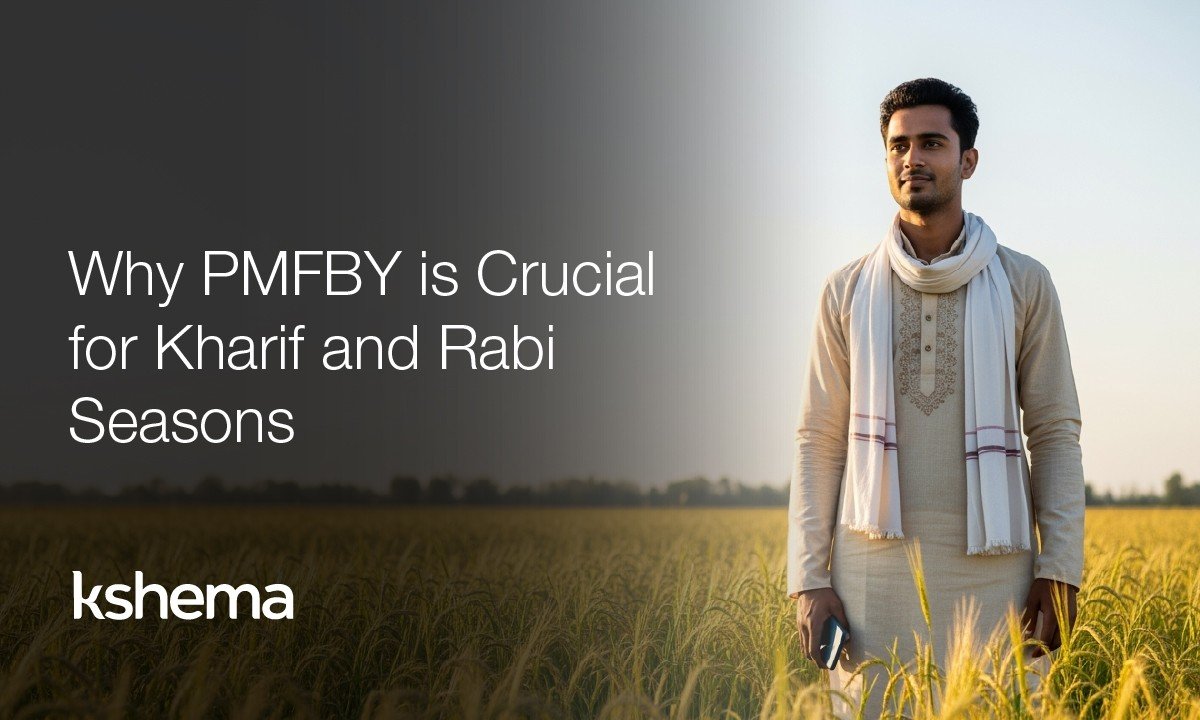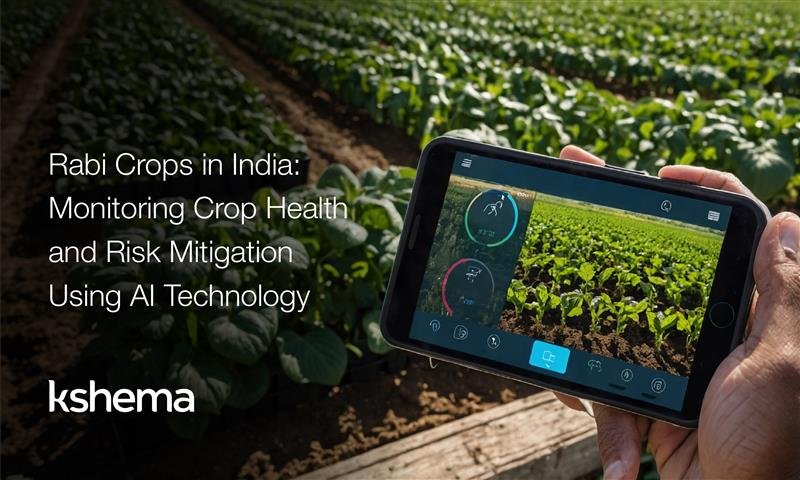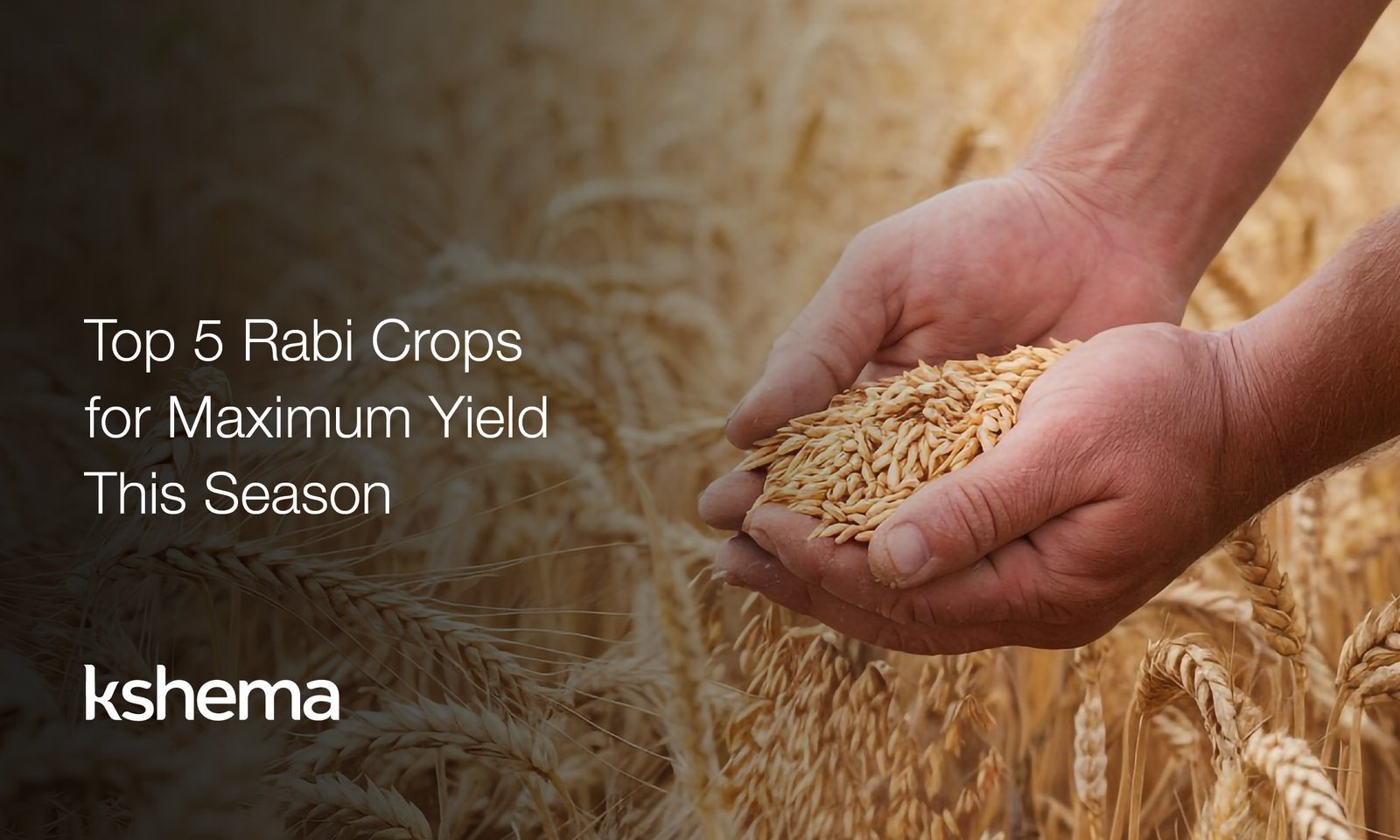Agriculture is India’s major economic activity with approximately 55 percent of its workforce engaged in agriculture or allied activities while small and marginal farmers constitute over 85% of this population. These farmers, owning less than 5 acres of land, play a vital role in ensuring the nation’s food security. However, they are also most vulnerable to risks, including unpredictable weather and fluctuating market prices. For such small farmers, protection is crucial because even a single crop failure can lead to devastating financial losses.
In this context, crop insurance in India is a lifeline, providing small farmers with the necessary protection and financial stability. This blog delves into why crop insurance is essential for small and marginal farmers, its benefits, and its transformative role for rural India.
The Challenges Faced by Small and Marginal Farmers
Small and marginal farmers in India face a range of challenges that threaten their livelihoods:- Unpredictable Weather: With climate change, events such as cyclones, floods, hailstorms, unseasonal rainfall etc. have become more frequent and severe.
- Pests and Diseases: Crops are susceptible to pest infestations and diseases, which can destroy entire crops.
- Rising Input Costs: Seeds, fertilisers, and pesticides have become costlier, increasing production expenses for farmers.
- Market Instability: Farmers are often forced to sell their produce at lower prices due to market fluctuations and lack of bargaining power.
- Debt Traps: Without adequate financial security, farmers are compelled to take loans, often at high interest rates, leading to debt cycles.
Why Crop Insurance in India is Essential for Small and Marginal Farmers
- Protection Against Uncertainties
- Financial Stability
- Mitigating Debt Dependency
- Long-Term Sustainability
Benefits of Crop Insurance in India for Small and Marginal Farmers
- Comprehensive Coverage: Crop insurance in India covers losses due to natural calamities, and even wild animal attacks.
- Affordable Premiums: Crop insurance products like Kshema Sukriti make crop insurance affordable even for marginal farmers.
- Protection from Income Shocks: Settlement of insurance claims safeguards the financial interest of the farmers by ensuring they have access to resources to continue farming.
- Empowerment: Crop insurance in India instills confidence in farmers, empowering them to focus on improving productivity rather than worrying about risks.
- Boosts Rural Economy: When farmers are financially secure, they can contribute to the rural economy by investing in inputs, machinery, and labour.
How Crop Insurance Schemes Work in India
- Enrollment: Farmers can enroll in crop insurance schemes in India through banks, insurance companies, Common Service Centers (CSCs) or mobile apps. They must provide details about their land, crops, Aadhaar, etc.
- Premium Payment: Farmers pay a small premium against a sum insured for their insured crop.
- Loss Reporting: In the event of crop loss, farmers report the damage to their insurance provider or local authorities. They can upload photos and/or videos of the crop damage to report loss.
- Claim Settlement: After verification, the insurer processes the claim and disburses the settlement to the farmer.
Role of Kshema General Insurance in Safeguarding the Small and Marginal Farmers
At Kshema General Insurance, we recognise the vital role of small and marginal farmers in India’s agricultural landscape. Our crop insurance solutions are tailored to meet the unique challenges faced by these farmers, offering them the financial security they deserve.Our Key Offerings Include:
- Comprehensive or customisable protection against losses caused by 8 perils.
- Coverage for damage caused by wild animals like elephants, wild boars, monkeys, and rabbits.
- Simplified enrollment and claims processes using the Kshema app to ensure ease of access for farmers.
Conclusion
Crop insurance in India is not just a financial product, it is a lifeline that ensures small and marginal farmers can continue farming despite challenges. By protecting them from financial losses, crop insurance plays a crucial role in promoting sustainable agriculture and rural development. At Kshema General Insurance, we stand by Indian farmers, offering them the tools and support they need to thrive. If you are a farmer looking to secure your crops and livelihood, explore our crop insurance solutions today. Let’s work together to build a resilient farming community for a better tomorrow.Frequently Asked Questions (FAQs)
Q1.Why is crop insurance essential for Indian farmers?
It protects income against weather shocks, pests, and other perils that can cause crop failure.
Q2. Who should buy crop insurance?
All farmers—especially small and marginal—who are most exposed to climate variability.
Q3. Does crop insurance reduce debt risk?
Yes. Payouts help repay loans and avoid distress sale of assets
Q4. Is insurance compulsory with agri loans?
Under schemes like PMFBY, insurance is mandatory for loanee farmers.
Q5. How quickly are claims settled?
Claim timelines depend on assessment, but digitization speeds up processing and disbursal.
Disclaimer:
“We do not assume any liability for any actions undertaken based on the information provided here. The information gathered from various sources and are displayed here for general guidance and does not constitute any professional advice or warranty of any kind.”


